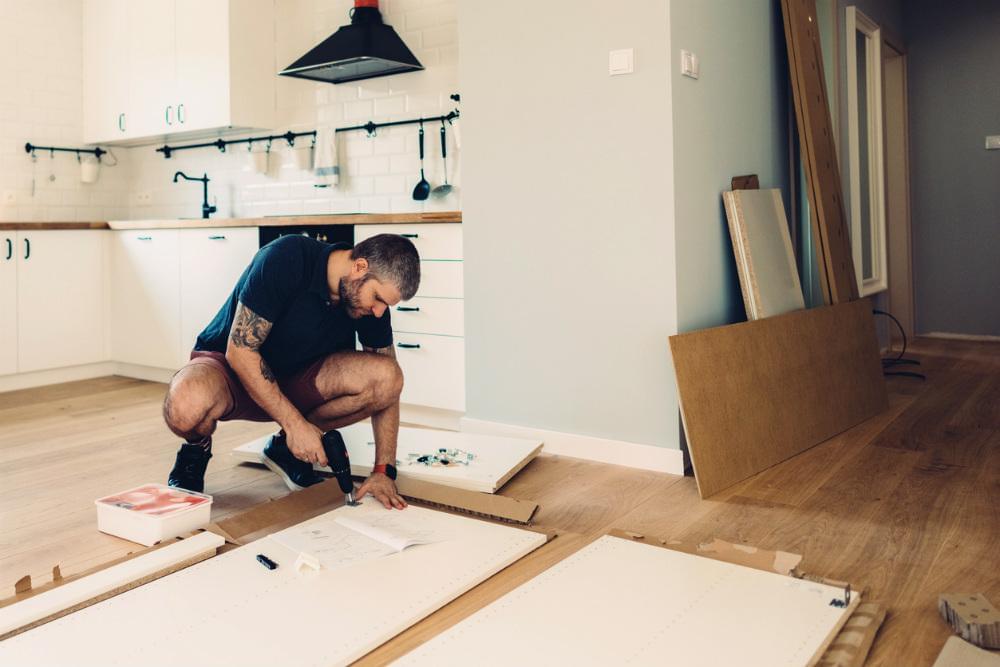Is it worth renovating before selling? 10 things to consider
It can be a tough call to make - renovate or sell up and move on.
Humans are by nature a sentimental species, and we are also creatures of habit, so leaving a place we call home - especially after many years - often ends up with us staying put. But if there are strong push factors at play - like not having enough room for a growing family, then we sometimes have to make the tough decision to pack up, sell and move on.
With this in mind, here are 10 things to consider before you make the call to renovate or sell.
1. What is your timeframe?
If you’re considering renovating, think carefully about how soon you need to sell. Major upgrades can take time and may not be worth the cost or disruption if you’re looking to move quickly.
As a rule of thumb, renovations are usually only worthwhile if you plan to stay put for at least five years. Otherwise, you may not recoup your investment when it comes time to sell.
"A general rule of thumb is that it is not worth renovating if you are going to move within five years"

2. Beware of overcapitalising
If you do decide to renovate you need to be careful not to overcapitalise. This essentially means spending too much on your renovation, with little hope of recouping your outlay when it comes time to sell. This is easy to do because we do become emotionally attached to our homes, and don't always think clearly when it comes to how much we spend and what we spend it on.
An example is installing a high end kitchen in an entry level unit, where you are unlikely to be able to work your outlay into the sale price. Sellers also often fall into the trap of going overboard with spending on bathrooms — be wary of the kind of return on investment your upgrades could bring.
Overcapitalising is also somewhat related to your timeframe, as the longer you live in the property you are benefiting from the investment.
3. Renovate smart
If you are going to stay put and upgrade your home, you need to renovate smart. This means choosing projects that add real value to your lifestyle and property. You also need to keep an eye on the market and speaking to a top local agent to understand what features potential buyers want in a home in your suburb.
Unsurprisingly kitchens - with a median spend of $20,000 - are the most popular rooms to renovate, followed by living rooms, bedrooms, bathrooms and laundries.
Renovate smart by choosing projects that add real value to your lifestyle and property but also address buyer trends within your local market.
4. Who is going to do the work for you?

Tempted to DIY your reno? Chances are that a pro can do a better job than you, and the financial cost can offset the physical, emotional and time toll you'd incur by doing it yourself. Unless it's a relatively simple job like painting, or you are particularly handy, it's often best to get in a licensed tradie or professional.
In many cases it could be a legal requirement, including any building, electrical and plumbing jobs or any project involving gas.
5. How are you going to fund your renovation?
Money is a major factor when deciding whether to renovate or sell, so it’s worth thinking through your options early. Most people use savings, redraw from their mortgage, or take out a loan — just be mindful of interest rates if you’re using a credit card or personal loan, as they can stack up quickly.
A common rule of thumb is to spend no more than 10 per cent of your property’s value on a renovation to avoid overcapitalising. And before you commit, it doesn’t hurt to get quotes — you might be surprised at how much (or how little) your plans could cost.
6. Improvements that increase value without major renovations
If you’re aiming to boost your home’s appeal without undertaking extensive renovations, consider these cost-effective enhancements:
- Deep clean and declutter: A spotless, clutter-free home feels more spacious and inviting, allowing buyers to envision themselves in the space.
- Fresh paint: Applying a neutral coat of paint can instantly modernise and brighten interiors, offering a clean slate for potential buyers.
- Update fixtures and hardware: Replacing outdated light fixtures, cabinet handles, and faucets can provide a contemporary touch without significant expense.
- Enhance curb appeal: Simple actions like mowing the lawn, trimming hedges, and adding potted plants can create a welcoming first impression.
- Professional staging: Arranging furniture and decor to highlight your home’s strengths can help buyers connect emotionally with the property.
These straightforward improvements can significantly impact buyer perception and may lead to a quicker sale at a better price, all without the need for major renovations.
7. The (hidden) cost of selling
Selling your home can come with a range of expenses — some expected, others less so. Along with paying your real estate agent’s commission, you’ll need to budget for conveyancing or legal fees, marketing expenses, and any pre-sale improvements or repairs.
Then there are the hidden costs: professional cleaning, home staging, storage, removalists, and potentially bridging finance if you’re buying and selling at the same time.
It’s also worth remembering that moving means leaving behind the routines and amenities you’ve grown to love — like your local school, shops or park — and starting fresh somewhere new.
8. The cost of buying
This brings us neatly to buying your new home and the material cost of this. Here you need to budget for a whole range of costs including title transfer fees, stamp duty, new loan application fees, lenders mortgage fees, valuation of a property and a deposit payable to the seller. Then there are the lawyers or conveyancers fees, building and pest inspections and strata search.
Yup - there are a bunch of things to budget for, and we haven't even listed them all here. Do your research and spreadsheet it all out.
9. What is the market doing?

The state of the property market can have a big impact on whether renovating is worthwhile. In a slower market or one with lots of listings, buyers have more options — so a well-presented, freshly updated home could help yours stand out and sell faster.
On the flip side, if you're selling in a hot market with limited stock and strong competition among buyers, you might be able to sell as-is without needing to renovate. Either way, it pays to understand what kind of market you’re in and what buyers in your area are looking for.
10. The common situations where renovating before selling would be beneficial
In some cases, renovating before you sell can make a lot of sense — especially if it helps your home meet buyer expectations or stand out in a competitive market.
If your property is in a sought-after suburb where buyers are paying premium prices, they’re also likely to expect a move-in ready home. That means fresh paint, updated fixtures, modern finishes and standout features like ducted air conditioning — especially for homes priced at $750,000 and above.
Renovating can also be a smart move if your home is significantly dated or likely to be compared unfavourably to similar listings in your area. Strategic upgrades to kitchens, bathrooms or outdoor spaces could help you compete — and command a higher sale price.
The final word on whether to renovate or sell
Deciding whether to renovate or sell comes down to your personal goals, financial situation and timing. Renovating can help you tailor your home to suit your lifestyle, but it takes planning, effort and discipline to stay on budget.
Selling, on the other hand, could offer a fresh start in a new location or with a different type of property, though it also comes with costs and stress. Take the time to weigh up your options carefully — and don’t be afraid to speak with an experienced agent to help guide the decision.







